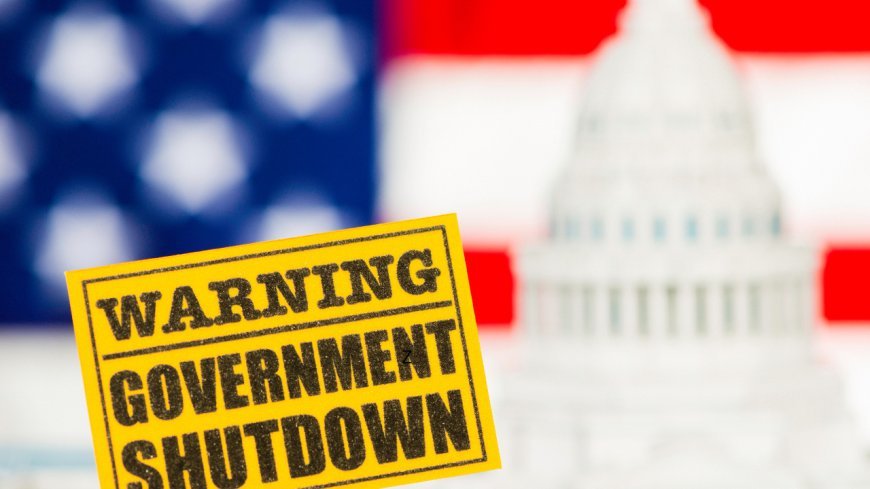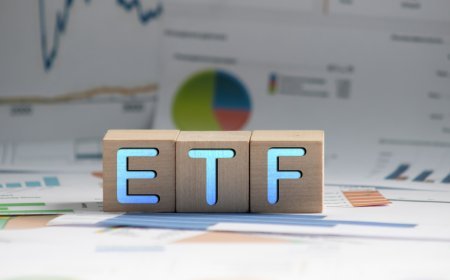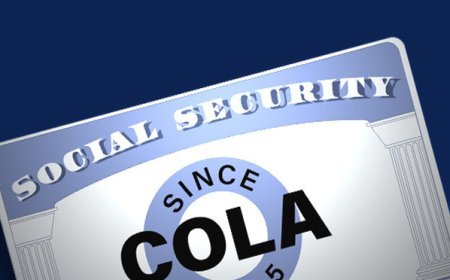How a Government Shutdown Could Impact Your Finances: Social Security, Student Loans, Investments, and More
A government shutdown looms when Congress fails to pass funding bills by the fiscal deadline, often turning federal budgets into a political chessboard. With September 30, 2025, as the next critical cutoff, a failure to act could pause non-essential government operations, sending ripples through personal finances. From Social Security checks to student loan processing, travel plans, and market volatility, the effects vary by sector and duration.

Social Security, Medicare, and Food Assistance: What Stays Safe?
Core safety-net programs are designed to weather funding lapses, providing stability for millions.
Social Security
Monthly payments, whether direct deposit or mailed checks, continue uninterrupted. The Social Security Administration uses prior-year funds to ensure benefits flow for retirees, disability recipients, and survivors.
Tip: Verify your bank account details now to avoid delays from unrelated issues, such as outdated information.
Medicare and Medicaid
Healthcare coverage remains active, and providers will accept these plans without disruption, as mandatory funding protects them from shutdown impacts. Patients can continue treatments and appointments as planned.
Tip: Confirm upcoming appointments and keep records of medical expenses for reimbursements.
SNAP and WIC
Food assistance via SNAP (Supplemental Nutrition Assistance Program) typically continues during a short shutdown, backed by reserve funds. However, WIC (Women, Infants, and Children) operates on a leaner budget, and prolonged shutdowns could disrupt benefits or close clinics.
Action: Stock up on non-perishable essentials and monitor state agency websites for updates if enrolled in WIC.
Student Loans: Navigating Processing Hiccups
A shutdown could disrupt federal student loan operations, particularly with recent staffing reductions at the Department of Education.
Loan and Grant Disbursements
Programs like Pell Grants and Federal Direct Student Loans rely on mandatory funds, ensuring payments for a limited period (typically weeks). Forgiveness programs may process, but delays are likely.
Tip: Check your loan status online and ensure you have funds to cover immediate educational expenses.
Service Delays
With up to 90% of Education Department staff furloughed, customer support slows significantly. Loan applications, disputes, or income-driven repayment recertifications could stall, and call centers may be unreachable.
Action: Use online portals like StudentAid.gov for self-service, set up autopay to avoid missed payments or interest spikes, and document all correspondence.
Travel Plans: Expect Delays, Plan Ahead
Travelers face mixed impacts, with essential services continuing but bottlenecks likely.
Airports and Security
TSA agents and air traffic controllers are deemed essential, so flights operate, but staffing shortages could extend security lines by 20-30%, as seen in past shutdowns.
Tip: Arrive at least 2-3 hours early for domestic flights and check airport websites for real-time updates.
Passports and Visas
Fee-funded services at the State Department continue, but processing delays may push new passport or visa issuances back by weeks.
Action: Apply or renew passports now if travel is planned within the next 3-6 months, and track application status online.
National Parks and Museums
Federal sites like national parks, monuments, and Smithsonian museums may close or limit hours, disrupting reservations.
Tip: Check park or museum websites for closure updates and explore state parks or private attractions as alternatives.
Pro Move: Enroll in TSA PreCheck (some credit cards reimburse the fee) to bypass long lines. Review travel insurance for coverage on delays or cancellations, and confirm flexible booking policies with airlines or hotels.
Investments and the Economy: Weathering Short-Term Storms
Economic impacts depend on a shutdown’s duration, with markets reacting to uncertainty.
Market Volatility
Stocks may dip 1-3% in the short term due to investor uncertainty, as observed in prior shutdowns. Bonds and Treasury interest payments remain stable, backed by federal borrowing authority. Long-term investors should see minimal impact on multi-year returns.
Tip: Avoid knee-jerk reactions like selling off 401(k) or IRA holdings during temporary dips.
Portfolio Strategy
Stick to long-term investment plans, and consider dollar-cost averaging to capitalize on market dips. High-yield savings accounts (4.5-5% APY as of September 2025) or CDs offer stability for cash reserves.
Action: Review your portfolio allocation and ensure it aligns with your risk tolerance and goals.
Federal Workers and Veterans: Paychecks and Services
Shutdowns hit federal employees and related services hardest.
Government Pay
Non-essential workers (approximately 2 million) face furloughs without pay until reopening, though retroactive pay is guaranteed. Contractors, however, may face unpaid layoffs without backpay.
Tip: Build a 3-6 month emergency fund to cover living expenses during furloughs.
Veterans and Military
VA hospitals and benefits like disability payments continue, but base commissaries may close, increasing grocery costs. Regional VA offices could limit non-essential services.
Action: Stock up on essentials and check VA.gov for service updates.
Everyday Services: What’s Open, What’s Not
A snapshot of other key services:
|
Service |
Shutdown Status |
Tips for You |
|---|---|---|
|
Mail Delivery |
Unaffected |
USPS operates normally—send bills on time. |
|
Federal Courts |
Fully operational |
Legal proceedings continue as scheduled. |
|
IRS and Taxes |
Reduced staff; auto-payments collected |
File taxes via online tools; expect phone delays. |
|
Unemployment |
State-dependent; federal delays likely |
Monitor state unemployment portals. |
|
SBA Loans |
Applications stalled |
Apply early for business or disaster loans. |
Your Financial Game Plan: Stay Proactive
A government shutdown isn’t a financial catastrophe, but its impact grows with duration. Short disruptions (under two weeks) cause minimal harm, while extended ones amplify delays in loans, travel, and services. Stay informed via congress.gov for legislative updates, and use budgeting apps to track spending.
Take Control:
-
Emergency Fund: Aim for 3-6 months of expenses to cushion income disruptions.
-
Loan Prep: Log into student loan accounts to confirm payment settings and save login credentials securely.
-
Travel Smarts: Book flexible fares, consider travel insurance for major trips, and verify refund policies.
-
Invest Wisely: Stick to long-term strategies, avoid panic-selling, and explore stable savings options like high-yield accounts or CDs.
By staying proactive and informed, you can navigate a government shutdown with minimal financial disruption.
What's Your Reaction?
 Like
0
Like
0
 Dislike
0
Dislike
0
 Love
0
Love
0
 Funny
0
Funny
0
 Angry
0
Angry
0
 Sad
0
Sad
0
 Wow
0
Wow
0












































